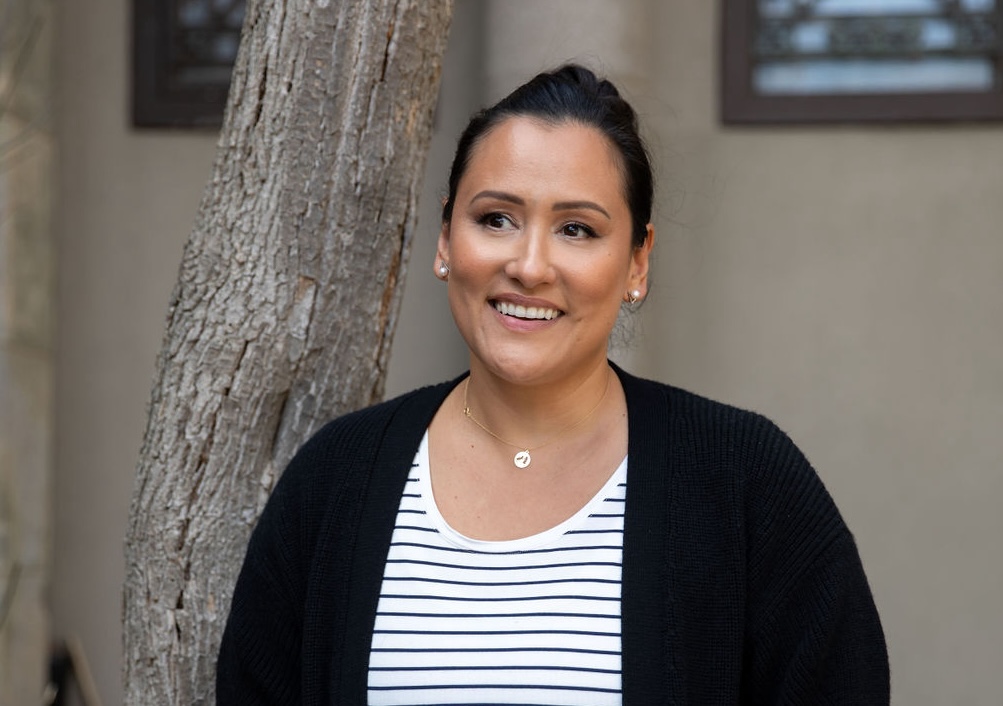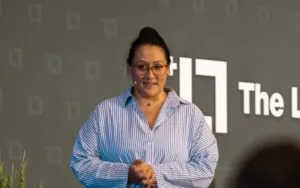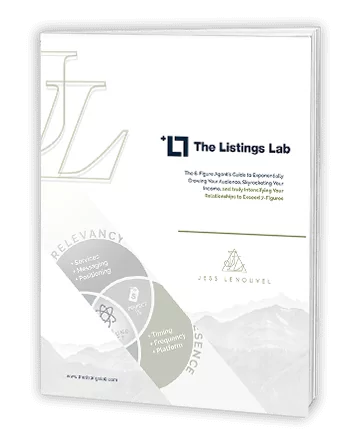Picture this: You’ve been steadily growing your real estate business.
You’ve even got a decent stream of income now – maybe for the first time in a while.
But somehow, you’re still living paycheck to paycheck.
You’re probably thinking, how?
How can I be pulling in a decent income and still be so stressed about money?
Sound familiar?
It all comes down to how you think about money.
Many agents focus on hustling to earn more, but overlook building real, lasting wealth.
In this blog post, I’m going to show you how to stop that cycle – once and for all.
I’ll go over the common money mistakes that are holding you back and my personal tips for how to invest to build wealth through real estate.
Let’s get to it!
Examining Our Childhood Money Stories
First, let’s examine why you view money the way you do.
Many of our beliefs surrounding money were deeply ingrained in us from childhood.
It doesn’t matter if you came from money or if money was always tight.
Maybe your family went back and forth between periods where things were good and periods where they were watching every penny.
Either way, those experiences stick with you.
And now, the thoughts and emotions from those memories often shape our financial decisions – without us even realizing it.
It’s easy to let old patterns repeat themselves when we don’t understand our money stories.
For example, if you grew up in a household where money was always tight, you might have witnessed your parents struggling.
Maybe they were constantly arguing over bills or stressed about making ends meet.
As an adult, this might show up as hoarding money – afraid to invest or spend because you fear experiencing those tough times again.
Or maybe, the opposite happens.
Maybe you hated the feeling of never having enough as a child, so now you’ve swung to the other side of the pendulum. You spend money as soon as you get it to avoid that feeling of scarcity.
Either way, recognizing these types of patterns is the first step to building wealth.
The Real Estate Lifestyle Trap
I got my real estate license when I was just 21 years old.
When my first commission check of $30,000 came in, I spent it exactly how you would think a 21-year-old would.
In my young life, I had never had that much money go into my bank account at one time.
And it was amazing how fast I spent it.
As quickly as the money hit my bank account, it was gone.
I fell into the common pattern of lifestyle creep, which is particularly common among real estate agents. I call it the real estate lifestyle trap.
Lifestyle creep happens when you start earning more and start upgrading your lifestyle to match your income.
The things that you used to consider luxuries are now your new necessities.
For me, it was designer shoes.
For you, it could be refreshing your entire wardrobe, upgrading to a fancier car, or buying a bigger house.
Remember this: It’s easy to fall into the trap of overspending, but the real win is creating a sustainable financial future for yourself.
Don’t spend more than you have and be sure to always to keep room in your business savings.
Why Money Management Matters as a Real Estate Agent
In real estate, the reality is that not every year is going to be your best year.
Markets can change, and suddenly money might be tighter than usual.
When this happens, agents often start cutting back on their business expenses instead of their lifestyle. This is the wrong move.
They’ve allowed the lifestyle creep to become their new normal.
And suddenly, the money that could have been reinvested into their business to get things back on track has disappeared.
This is what happens when agents design their spending plans based on their best year ever.
Just because you had a good year once or twice, doesn’t mean you can keep up that same level of spending indefinitely.
Without proper money management, you’ll have nothing left to invest in the business for future growth.
And that’s where the serious problems begin.
When you prioritize lifestyle upgrades over reinvesting in your business, you stunt its potential.
To build long-term wealth through real estate, you need to manage your money wisely.
Find the balance between living the lifestyle you want while making sure you have the resources to invest in your business’s growth.
5 Mistakes Agents Are Making With Their Money
Even the most experienced real estate agents make money mistakes that hold their business back.
Whether it’s overspending or letting outside influences affect your decisions, these can seriously hurt your long-term success.
Let’s take a look at 5 of the most common mistakes I see agents making with their money.
Recognizing them can help you build a solid foundation of wealth for your financial future.
Mistake #1: Not Separating Personal & Business Money
The difference between being a real estate agent and being a real estate business?
A real estate business deposits all business revenue into a business account and then from that, pays themselves a salary.
As a real estate business, your business money is NOT your personal money.
If your commissions equal your entire income, you will always take from your business.
Rather than investing back into the business, you see all income as your personal income – and fall victim to lifestyle creep.
To solve this, you HAVE to separate your money – one business account and personal account.
The most successful entrepreneurs put their business growth FIRST and their lifestyle upgrades SECOND.
They cut back in their personal lives to make sure their business stays safe.
Not the other way around.
Mistake #2: Caring Too Much About “Looking” Successful
Many real estate agents feel the need to look the part of success.
They spend more money than they should on luxury cars and designer brands.
All so everyone around them knows how successful they are.
This is different from simply enjoying wearing fun or fancy clothes.
It’s not a reflection of any personal values.
It’s simply driven by the desire for the approval of others.
But always trying to impress others drains your money fast.
Instead of chasing appearances, focus on building money management skills that create a solid financial foundation.
Remember: True success isn’t about how others see you — it’s about how secure and confident you feel in your future.
Mistake #3: Letting Their Partner Influence Business Finances
Whether you’re married or not, your partner has no say in how you spend in your business.
This comes back to the importance of separating your business money and personal money.
It’s common for agents to let their spouses or partners weigh in on big financial decisions.
However, unless they’re a licensed realtor and your business partner, their opinion doesn’t matter.
Your business is YOUR business.
The decisions you make in it are crucial for your success, how you scale, build your brand, and create the legacy you want for your future.
Mistake #4: Recklessly Spending Without Strategy
Many agents spend irresponsibly.
Take marketing, for example. There are agents who pour tons of money into things like postcards and simply hope for the best.
They might land one deal out of it and call it a success – even if they just break even.
But breaking even isn’t enough.
If you’ve been sending postcards consistently for 12 years and have gotten 27 deals out of it, the ROI just doesn’t add up. You could easily 25x that with digital marketing.
Without a clear strategy, these random investments won’t build lasting wealth.
The goal of your business spending should always be to see at least a 10x return – not to just cover the cost you spent.
So, the next time you have to make a big financial decision, ask yourself, “Is this the most effective way to scale my business? Will this 10x my ROI?”
You can have all the things you want in your personal life if you’re strategic about it.
You have to be willing to do the same in your business.
Mistake #5: Not Knowing Your Financial Set Point
Everyone has a set point in their bank account that makes them feel comfortable.
When you dip below it, you start to get uncomfortable and hustle and save to reach that point again.
But when you’re above it, it can trigger unconscious spending and bring you back down.
Though it’s typically not something you actively think about, your set point affects your spending and saving habits.
The key is to know what that number is and how it impacts your behavior.
As business owners, your goal is to gradually raise your set point over time.
The key to scaling your business is increasing your minimum standards.
Where to Invest to Build Wealth
Just like managing your business finances, investing requires a clear strategy.
But before selecting what kind of investment to make, you need to know your goals.
Ask yourself:
- What are my personal goals?
- Where do I see myself in a few years?
- Do I want to continue working or aim for early retirement?
Not every investment will align with where you want to be.
Once you’re clear on your goals, then decide what investments will be the best options to help you build your wealth and reach your vision.
Here are 4 of my personal favorite investment options:
Passive Investments
When most people think of passive investing, they think of investing in real estate.
But let me tell you…
Investing in real estate is not passive. 😅
Personally, being a residential landlord and receiving late-night maintenance calls is not my idea of how passive investing should feel.
I consider passive investments things that generate income without your constant involvement.
Think REITs (Real Estate Investment Trusts) or investment funds – things that give you steady returns without your active participation.
With these, you can enjoy the benefits of investing without sacrificing your time and peace of mind.
Skills
Investing in yourself is one of the most valuable choices you can make.
Skills are assets that no one can take away from you.
Even if markets crash or life throws unexpected challenges, your skills are what keep you prepared.
Whether it’s sales, marketing, or leadership, developing your abilities gives you the resilience to rebuild, no matter what happens.
Your Audience
Your audience is one of your biggest assets.
You need to be properly nurturing them and guiding them through your funnel.
And I don’t just mean your followers on social media.
Social media is rented land. You never know when your account could randomly be deactivated.
Instead, consider investing in your email lists and your client database.
These are audiences that you own, and they can never be taken from you.
“Boring” Businesses
Don’t overlook investing in simple, essential businesses.
Things like self-storage, laundromats, trailer parks, and even vending machines aren’t exactly fun and exciting.
But they are necessary and needed and can generate consistent income.
Plus, they don’t need much oversight, which is great for low-maintenance returns.
Bottom Line: Your Real Estate Business Doesn’t Exist Just To Fund Your Lifestyle
Your real estate business isn’t here just to fund your lifestyle.
If you keep using commission checks to buy new clothes, cars, or designer brands, you’ll always be stuck in the same cycle.
You’ll be working forever with no real wealth to show for it.
Your real estate business can be the vehicle for everything else that you want to do – including building long-term wealth – if you’re strategic.
The key is managing your income wisely and invest it into areas that will produce long-term growth.
NOT spend it on short-term luxuries.
Sacrificing your lifestyle now can set you up for bigger rewards later.
It all comes down to making smart choices with your money.
If you focus on strategically managing your money and investing properly for your real estate business, you’ll set yourself up for building wealth and financial freedom.
So, the real question is: do you want to look wealthy today, or do you want to be wealthy in the future?
The choice is yours.
At The Listings Lab, we can help you learn the skills you need to market your business, land consistent deals, and grow your income to 7 figures.
Are you ready to have your real estate business be the start of your wealth journey?
Click here to book a FREE call with our team and take the first step towards building wealth and creating lasting financial freedom.








